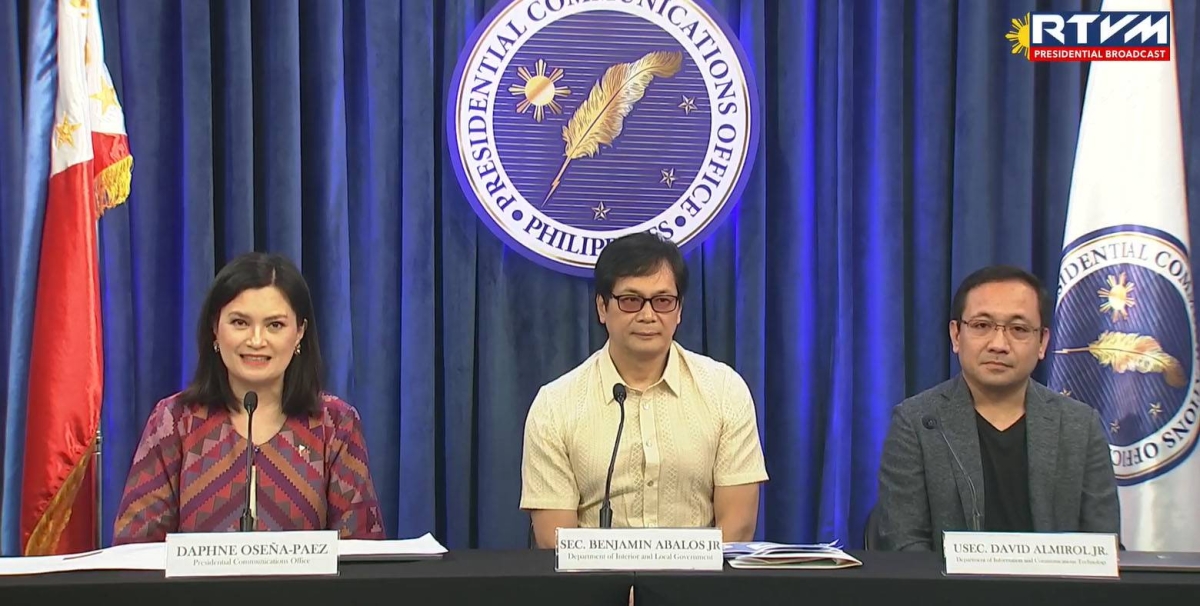In a recent development, the Department of the Interior and Local Government (DILG) in the Philippines has announced its decision to comply with President Ferdinand Marcos Jr.’s directive to not cooperate with the International Criminal Court’s (ICC) investigation into the country’s war on drugs. This decision was revealed by Interior Secretary Benjamin Abalos Jr. during a Palace briefing.
Abalos clarified that there has been no communication between the DILG and the ICC investigators, who were reportedly in the Philippines to conduct their investigation during the presidency of Rodrigo Duterte. He stated, “As far as our office is concerned, the DILG, I have no knowledge about this. There’s no communication with them, nothing at all.”
The Interior Secretary emphasized that the DILG would always follow the lead of the President on such matters. He further added, “Well, wala po tayong itinatago (we are not hiding anything), we will be transparent as we are, we are a democratic country, we follow all the law here.”
The decision by the Philippines to not cooperate with the ICC investigation has raised concerns and garnered attention both nationally and internationally. It is important to understand the context and implications of this decision.
The war on drugs in the Philippines, initiated during the presidency of Rodrigo Duterte, has been a controversial and highly debated issue. The campaign aimed to eradicate drug-related crimes and drug abuse from the country. However, it has faced criticism for alleged human rights violations and extrajudicial killings.
The ICC investigation was launched to examine these allegations and determine if there were any violations of international law. The ICC has the mandate to investigate and prosecute individuals responsible for the most serious crimes, including war crimes and crimes against humanity.
The decision of the Philippines to not cooperate with the ICC investigation can be seen as a reflection of the country’s sovereignty and its stance on international intervention. It is important to note that the Philippines is not a signatory to the Rome Statute, the treaty that established the ICC. Therefore, the ICC’s jurisdiction over the country’s internal matters is a subject of debate.
The Philippines’ decision also highlights the complex relationship between national and international law. While the ICC operates on the principles of international law, individual countries have the right to determine their own legal frameworks and policies. The decision to not cooperate with the ICC investigation is within the Philippines’ legal authority.
However, it is crucial to ensure that accountability and justice are not compromised. The Philippines has its own legal system and mechanisms to address human rights violations and hold individuals accountable for their actions. It is imperative that these domestic processes are robust, transparent, and independent to uphold the rule of law and protect human rights.
The international community, including human rights organizations, has been closely monitoring the situation in the Philippines. The decision to not cooperate with the ICC investigation raises questions about the country’s commitment to upholding human rights standards and addressing allegations of abuses.
As the Philippines moves forward, it is essential for the government to demonstrate its commitment to transparency, accountability, and the protection of human rights. Upholding the rule of law and ensuring justice for all should be at the forefront of any actions taken by the government.
In conclusion, the decision of the Philippines to not cooperate with the ICC investigation into the war on drugs has significant implications both domestically and internationally. It reflects the country’s stance on sovereignty and its interpretation of international law. However, it also raises concerns about accountability and the protection of human rights. Moving forward, it is crucial for the Philippines to prioritize transparency, accountability, and the rule of law to address the allegations and ensure justice for all.







